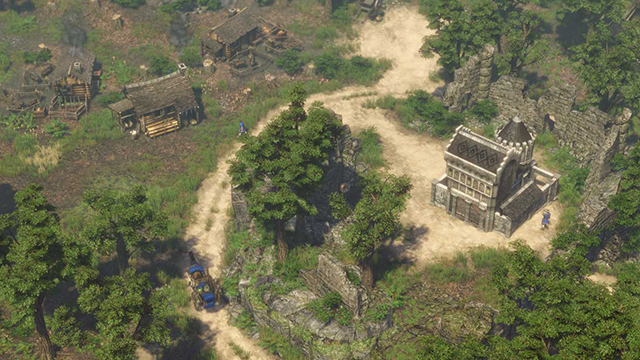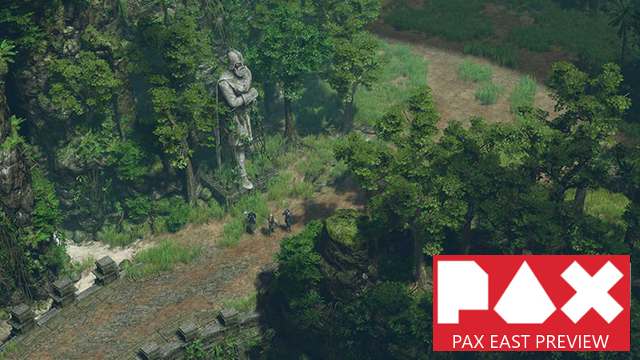For all but the most dedicated strategy fans, there tends to be an inclination toward one end of the genre spectrum or another in terms of where one develops their expertise. Personally I’ve earned my stripes with strategy RPGs, logging over 100 hours with several Fire Emblems and leaving the RTS operations to others with more know-how than myself. In theory this distinction melts away with Spellforce 3, the upcoming third entry in the strategy series known for blending both.
The concept had me nervous at first, but seeing real-time strategy hallmarks candy-coated in familiar mechanics like questing and leveling up heroes and their skill trees quickly put those feelings to rest. My demo was guided by a member of Spellforce III’s development team, and over the course of a solid half-hour I absorbed more detail and information than I’ve probably ever seen in a thirty-minute demo. As such I won’t go into all of it, but I will touch on what stood out.
As mentioned, Spellforce is known for its RTS and RPG hybrid quality, and Grimlore Games is taking that a step further this time around. There’s a story mode where three champions are selected from a list of 10 at the outset, and from there you can pretty much play the game with those heroes as your focus if you so choose. Questing, acquiring abilities and skills for your heroes as they grow stronger, and even fully-voiced dialogue and story encounters all contribute toward fleshing out this facet of the game. What’s interesting is that some of these threads will be self-contained in the current map, while some will be overarch your entire experience with the game. It will be interesting to see how Grimlore manages to pace this, though for now it seems like they know what they’re doing.
On the real-time strategy side things came off as familiar, but with some very notable outliers and funny or memorable moments. There are three playable factions in the game (Elves, Orcs, and Humans), each with four unit types to choose from (archer, swordsmen, spearmen, and cavalry equivalents respectively). Beyond that you’ve got workers, who inhabit your farms and structures that drive economy, while each race contains its own special units beyond that. It was emphasized repeatedly that Grimlore has little patience for one side of the strategy coin or the other arriving to players half-baked – just because it’s an RPG and an RTS, doesn’t mean it’s a master of neither. At the very least I enjoy the premise, and saw little to prove the claim wrong during my demo time.

Part of how this is balanced has to do with automation; while you’re off questing and living out your heroes’ epic adventures, you won’t want to constantly monitor your economy, settlements, and general RTS maintenance you might be used to. For these situations, schedules can be set in a queue (ie, I want this much production, then I want to raid a nearby small settlement, then rally the base and commit all workers toward erecting new structures there).
A small strip of text and numerical goings-on lines the top of your screen to provide queue updates, and from what I saw it does a fairly effective job at informing on current projects, or at least making it clear if something goes horribly awry. I’m wondering if the plot’s more engrossing moments would have me ignoring this info strip anyway, only to return to fire, brimstone, and slain troops galore, but I’m confident the proper habits can be learned before that happens. Plus, some players will be so primarily focused on the game as RTS-first that they may never have this worry anyway.

Later I was shown an ancient shrine off the beaten path of the heavily forested map currently being explored, and before I knew what was going on some of my units began praying at it. This resulted in a mass ritual of resurrecting the dead, and before long freshly-minted zombies had hastily wandered off and begun to assault an enemy camp! It was soon explained that though these newly-aquired allies are on your side, they cannot be directly controlled, so summoning wildcard lurchers into your midst is a potent but unpredictable strategy. Each map promises to have similar quirks or surprises of its own, and I can say quite confidently that discovering them, in tandem with unfurling Spellforce 3’s main story, is what I’m looking forward to most out of anything.
Spellforce 3 has a closed beta coming up, with release planned for later this year depending on the response and feedback that ensues. I intend to explore the game further during that period, so stay tuned for more impressions and, hopefully, amusing unpredictability when I do so.










